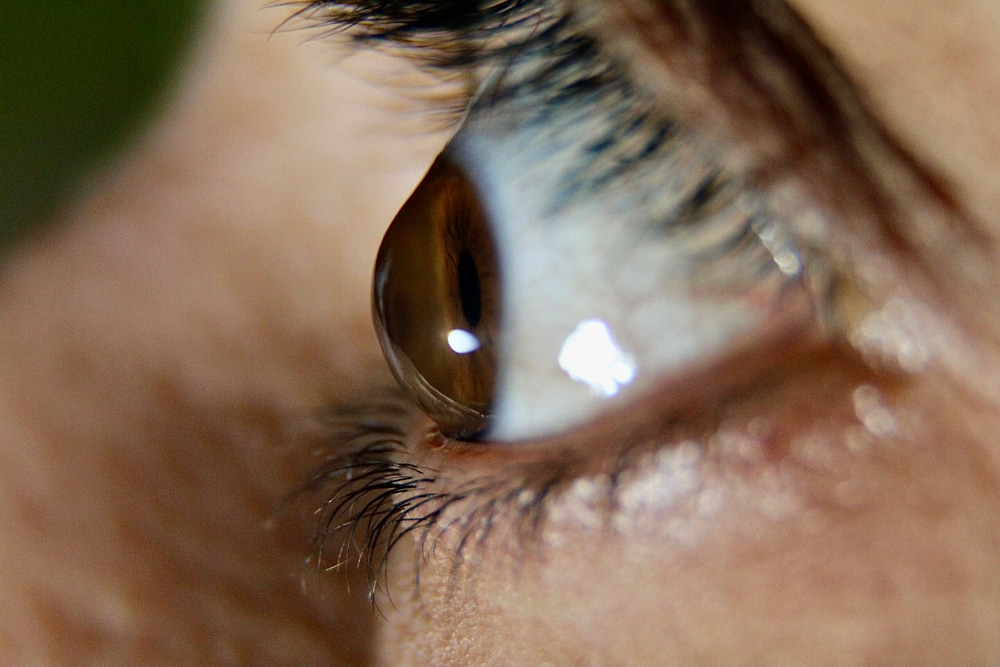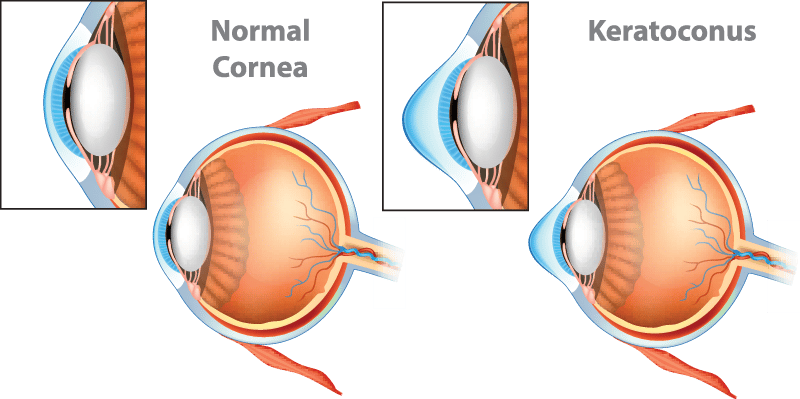
Keratoconus is a common disorder in which the central part of the cornea becomes thinner. This causes a bulging in the cornea and gives it a cone or nipple shape.
Most patients have keratoconus in both eyes, but, some eyes may show only a lot of astigmatism, resulting in blurriness which is the reason for a first visit to the doctor.
This condition usually begins in the later teens or early 20s and is progressive, usually to the age of 40. Spontaneous perforation is rare. Severe rubbing of the cornea can cause a break in the deepest layer of the cornea which causes swelling (edema) with a white spot in the cornea giving poor vision. This usually lasts for 6 to 16 weeks.
The cause is unknown and less than 10% of patients have a family history of this disorder.
Some cases of keratoconus are mild and patients only require glasses. The majority of patients, however, need to wear rigid contact lenses. A new treatment called corneal cross-linking can help strengthen the cornea to prevent further weakening of the cornea. If all the above fail, then a partial (DALK) or a full thickness (PKP) corneal transplant is done to rehabilitate vision.

A corneal transplant may be needed when the cornea is irregular in shape or scarred. Keratoconus is a condition in which the cornea is cone-shaped, causing blurred or distorted images. Infections and trauma may lead to scars in the cornea, limiting your vision as well.
In full-thickness corneal transplantation, the damaged or diseased portion of your cornea is removed in the shape of a button that extends through the full-thickness of the cornea. A donor corneal button is then cut and placed in the area from where your diseased cornea was removed and is sewn to the rim of your own normal cornea with very fine sutures.
Wheaton Eye Clinic’s unparalleled commitment to excellence is evident in our continued growth. Today we provide world-class medical and surgical care to patients in six suburban locations—Wheaton, Naperville, Hinsdale, Plainfield, St. Charles, and Bartlett.
(630) 668-8250 (800) 637-1054